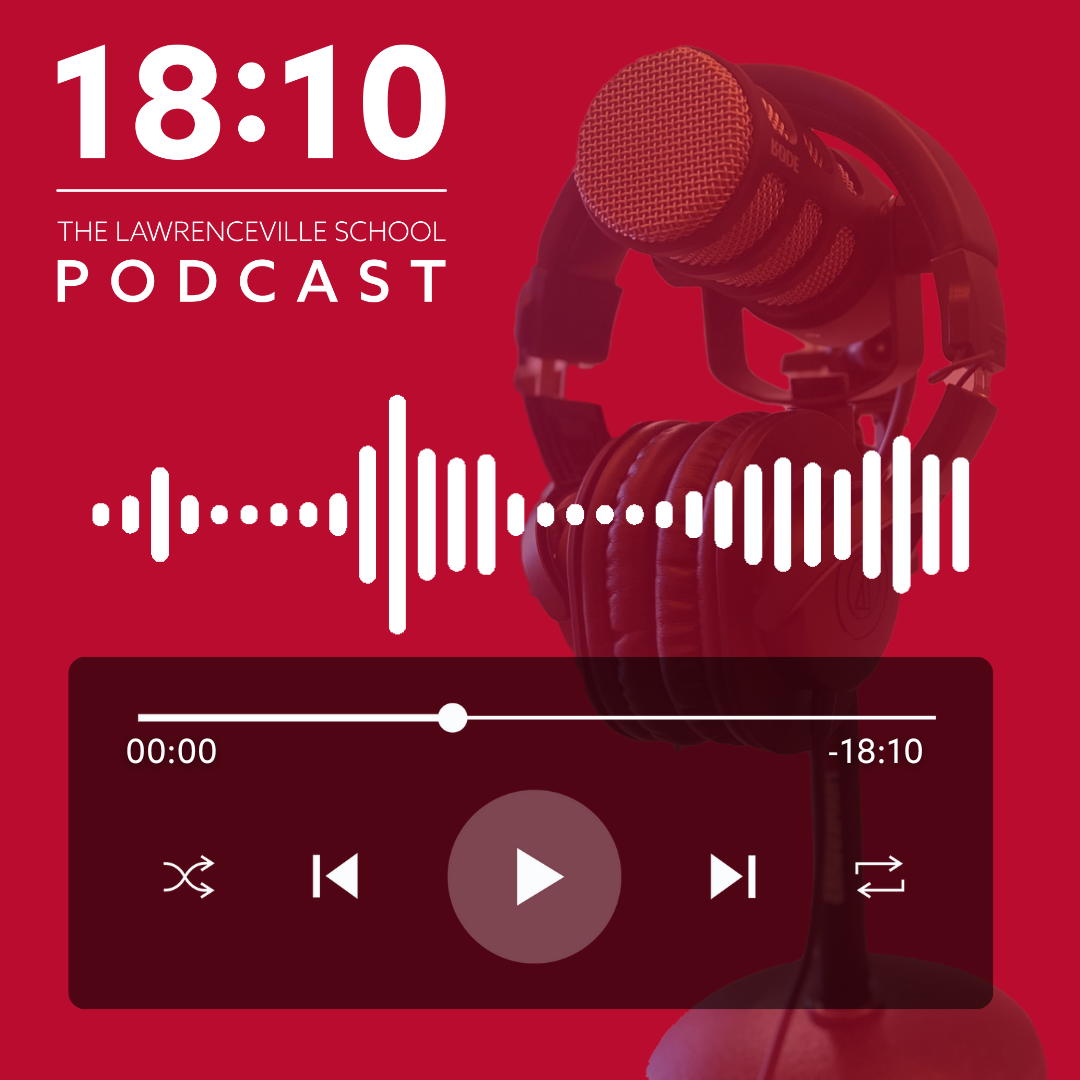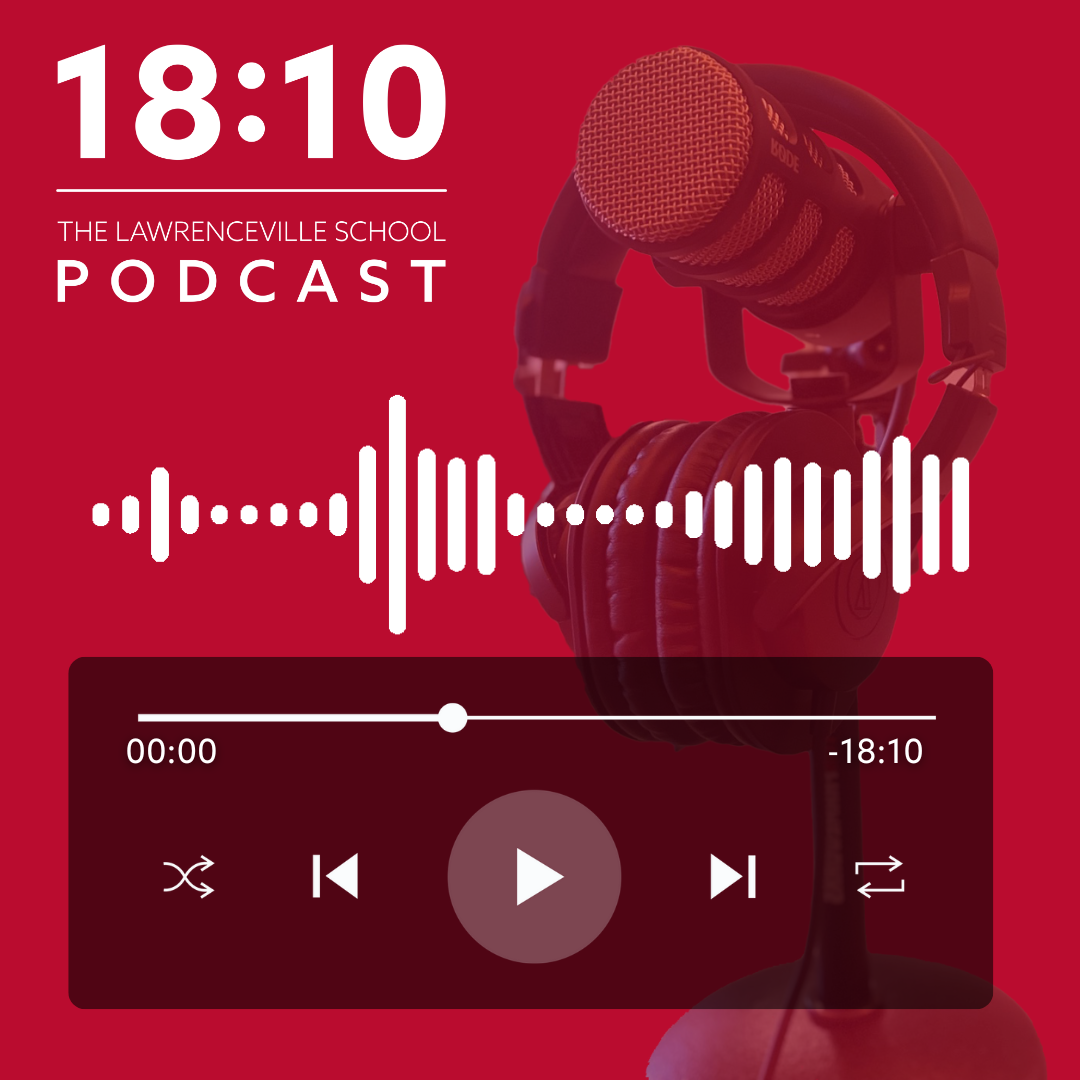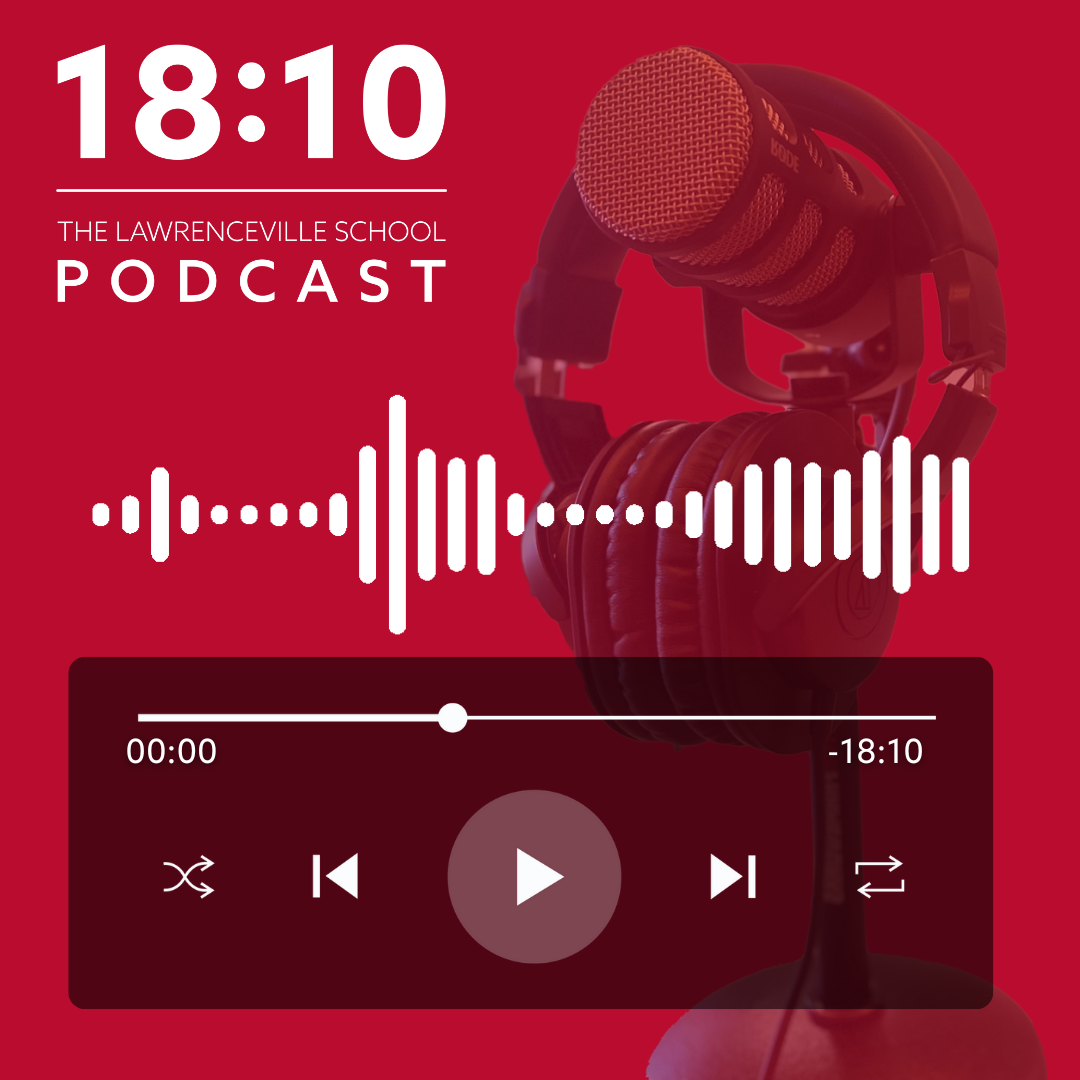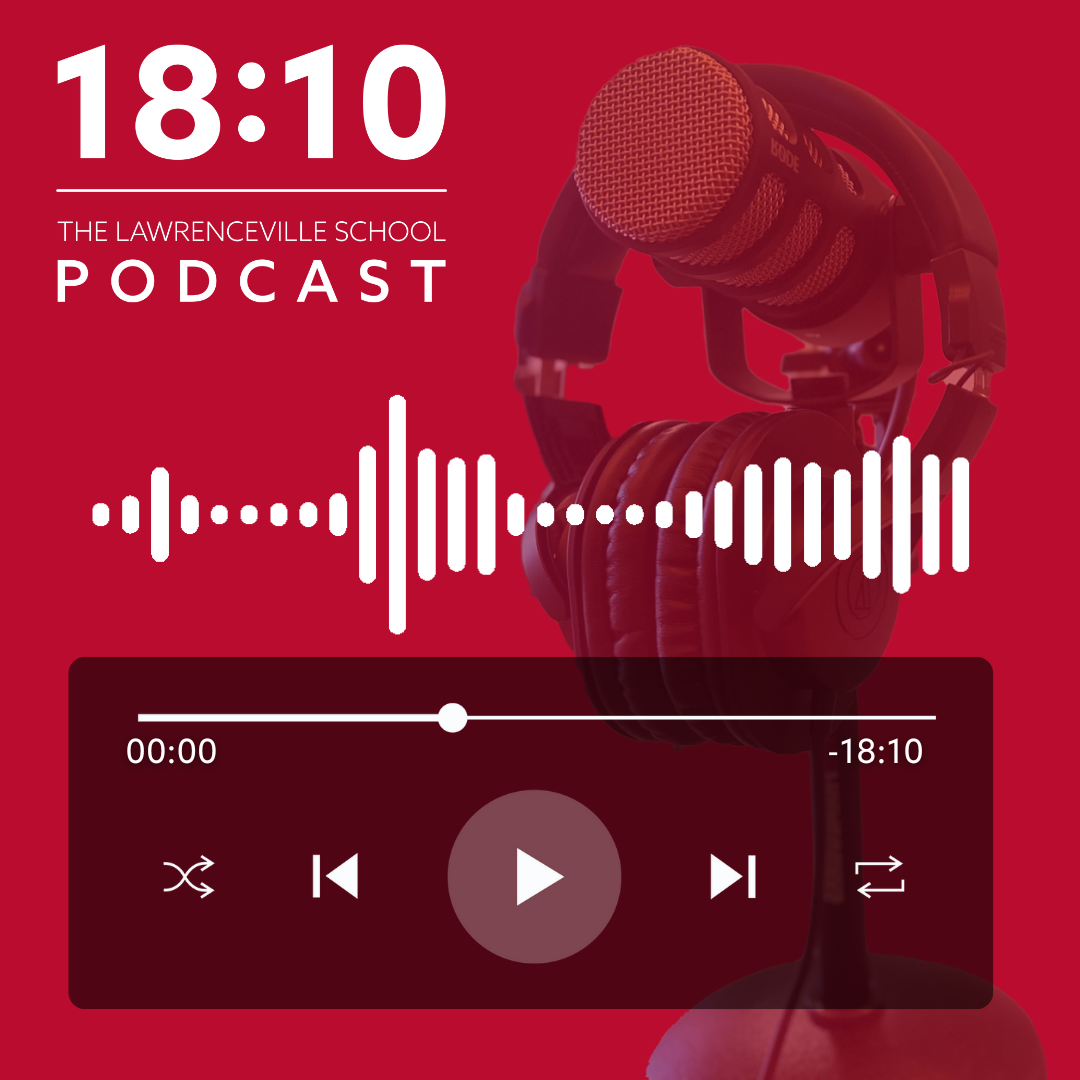Episode Transcript
[00:00:01] Speaker A: Welcome to 1810, a podcast produced by the Lawrenceville School. In 18 minutes and 10 seconds we explore the future of education with insights from bright minded individuals, inspiring new ways of thinking. I'm Jennifer Parnell, Director of Innovation and AI Projects here at Lawrenceville, history teacher and assistant track and field coach. Today I pick up my conversation with AJ Dahl on the impact of AI in the educational sphere and how we at Lawrenceville are really learning with this game changing technology. To briefly recap episode one for our listeners, we had a wide ranging discussion really encompassing the growth and impact of AI, focusing on the world of business, and we ended with really some of the many challenges that are facing AI development. And those issues really covered everything from algorithmic bias to copyright, citation and fair use issues, to the transparency issues to interpretability of models, from hallucinations and emergence to the limitations that are presented by training data sets, over reliance and finally energy use. Clearly there are layers of concerns and in many ways we do not as a society have predictive models for the growth and the potential disruption we have seen and we will continue to see with AI. This is also a really exciting time. It's defined by infinite possibility and perhaps a reimagined future for teaching and learning. AJ welcome back to 1810. Let's start right in with today's Focus Education and AI.
How do you feel that the educational world has responded to this challenge? I mean, one post immediately after GPT, I think it was from a student at Amherst College, said we're witnessing the death of the college essay in real time. And sort of the question emerges, should we reimagine education in the same way that we're reimagining commerce and trade and business? Should students learn the way that you and I learned? Is that really the best way to teach? Is that what the purpose of education is?
[00:02:07] Speaker B: Yeah, I would say the debate on this is rampant. I kind of reference some of the dialogue you had with New York Times a year ago. I believe what I would say is this is a tsunami jump on it.
I think for educators that won't embrace it, I think you'd get left behind.
I think what Lawrenceville is doing is to take much more fit for purpose, fit for future approach is very impressive.
And I think what this does is it actually begins to bring forward real knowledge. Digital tutors and assistants for every student, not just at Lawrenceville, but across academia.
[00:02:51] Speaker A: I think that's the goal, isn't it? You really want education to be more purposeful, more relevant, and in many cases more joyful and I think for some ways, the initial response of the educators that I spoke to and that I have spoken to over the last couple of years, it's really been focused on the punitive aspect. In other words, mostly looking at AI detection tools. And there's a lot of problems associated with AI detection in the educational world. There's equity issues. It falsely tags, text is AI generated and once text is manipulated, it becomes almost impossible to detect. And watermarking technology just isn't where we need it to be. But part of it, at least part of it to me is I've never in my life had to solve a problem by sitting alone in a room without using resources or talking to people. And the question is, should we let the college essay die? Should we now be, instead of limiting our students, enabling them and really creating a culture, more of innovation? This is, in my mind, this needs to be a paradigm shift from seeing the product as the goal and envisioning the process as the essential learning.
[00:04:00] Speaker B: I'd agree. I also think that's going to really require the educators to adapt.
I think there's got to be a much greater focus in terms of how do you evolve to higher order learning.
How do you equip every student with a digital assistant, additional tutor that's personalized to kind of accelerate their learning? So I think there's a big giant, call it piece of work ahead of us to say how do you adapt at an educator level and then what do you do with the students in terms of them really embracing, becoming fluent and then leveraging these personalized tutors? All of this supplemental to what the teacher is doing in the classroom?
[00:04:43] Speaker A: Yeah, I think we're not eliminating the teacher. I think the teacher then becomes more of a guide along this learning journey. And I think we have to really think consciously about what success looks like if we do integrate AI well into education.
What does that mean on a day to day basis? At least in my experience and here on campus, we're really looking at linking sort of the mission, mission driven learning with real life problem solving. What if students work on real world problems rather than theoretical problems? I mean, maybe it's time to move towards a more project based learning model. And we know that constructivism is really this appealing convergence of technology and learning. But we could also, by really visualizing a community of learners in a new way, start to think about strategically applying AI not only across campuses, but really addressing larger societal problems. To me, that's one of the most appealing aspects of AI, is that we can really change the utility of education and make the experience more transformative and less transactional.
[00:05:52] Speaker B: Completely agree. And I think it's a unique moment for Lawrenceville to actually take a bit of a leadership approach here through some work that you've already put into motion around getting teams of students, getting some incubation, starting to work on projects. I think the dialogue you and I have been having in terms of linkages between industry and and the school, I think this is all about how do you equip the future Laurentian to go to college with a very unique proposition of AI fluency.
[00:06:29] Speaker A: There's a recent book that echoes that called Future Skills. And the quote I love is it's never been more important to approach technology with a positive attitude because times are changing and continual learning will be the norm. That's what will separate the successful from the not so successful. And so, like any ecosystem change, we have to recognize that it doesn't happen in silos. And now what we may start to look at is more the development of what the World Economic Forum calls soft skills. In other words, resiliency, critical thinking, problem solving. These have always been an important part of Lawrenceville education and really most education. But I think now we're looking at this idea of really cultivating intellectual curiosity and mental agility as the key to really seeing this profile shift.
[00:07:19] Speaker B: Yeah, and I think that's completely true of what's happening in the business enterprise, especially this notion of intellectual curiosity, mental agility that you just referenced. The ability for not just the technologies, but everybody across different domains and functions in these enterprises that start actually gets fluency in things like AI. It is going to become essential for enterprises to be successful.
[00:07:48] Speaker A: I think it's going to be essential for all of our students, obviously as well. I think the broader goal with AI is, and as with any emerging technology, is that we can start to utilize this to harness it for social good. We can solve greater environmental problems, global health issues, poverty, energy crises. I think what AI allows us to do is really chart that path from learning to societal impact. The goal is cultivating a growth mindset with a global vision. And I feel like we share that intentionality. And that's what's one of the things that's made this collaboration so interesting. So, AJ I think one of the things that we're looking at is really how you apply AI strategically across a campus. And what does that look like or what might that look like for schools? At least here at Lawrenceville, we've looked at the essentiality of having a student led, student driven committee Sort of a multidisciplinary campus approach to it, where you can really harness actionable data into insights on campus and identify opportunities where the service that our students are doing is not for an outside organization, or it can be, but it's also really to the organization in which we all live and work. At a residential campus, we're sort of in a unique environment where our students are here all the time. And at the same time, we can really, really think about how to formulate a feedback loop that links those academic and operational realms. But perhaps the most important guidance that faculty could provide is just being open to technological change.
[00:09:24] Speaker B: Yeah. You know, my suggestion here is it's the same in business enterprises.
I would do a couple of things. One is I think everyone in the administration and all of the teachers need to get educated. Step number one in my analog, that's called the executive teams and the senior leadership, because they need to start getting the fluency so that they can actually begin to dialogue with, in your case, students, in my case, employees, and asking them questions whether they're leveraging AI and its benefit.
Then simultaneously, I would do exactly what you're saying is pick specific projects where you can take data, turn it into insights, and really capture outcomes that move the needle across your. Call it KPIs and metrics that the school cares about.
[00:10:18] Speaker A: And I think we've done that in specific instances with certain departments on campus. We've had a number of students that have done independent studies or senior projects that really allow us to watch what can happen when a student is actually using AI or writing a large language model themselves, sort of learning by doing. It's constructivism at its core. There's also this incredible balancing act that has to happen between traditional subjects and reevaluating kind of where we're going to go. And. And I think the idea is we want innovations that really deeply advance student learning rather than just scratch the surface of some kind of educational improvement. AI has to enhance the learning, not completely replace the learning.
[00:11:07] Speaker B: Yeah, I completely agree. The other thing I would say is it's one of these technologies that's also relevant to your STEM students, but they're also very relevant to your liberal arts and linguistics students.
And I think this convergence of people in your community that are actually solving problems that are end to end, that may have more of a technical slant and, or more of a, I'm just going to say, an education slant, whether it's history, chemistry.
I think there's some really interesting work that can happen at Lawrenceville in Terms of how do you navigate through real problems, real topics, and how do you have people with the left brain or the right brain more developed, solve these issues in combination.
[00:11:54] Speaker A: I think it makes all students see the education as a more transformative process and less transactional. It's been very exciting to watch some of the students when they start to collaborate. You have students that don't necessarily interact. They haven't taken the same classes, but they really are engaged in what others are doing. And it creates a culture of innovation that's impossible to really nurture.
It has to happen from the ground up. It has to be organic. But that culture of innovation is really what sets a student's experience apart at a school.
[00:12:28] Speaker B: Yeah. And you know what I would say is it's the same experience in business enterprises.
I'll give you an example. We've created an AI hub.
It's got a fairly younger age demographic. What I can tell you is the velocity with which they are leveraging AI to solve problems that have been called chronic to the industry for multiple years is mind blowing. There, you know, there's passion, there's enthusiasm, there's frankly, a level of fearlessness. But what they're equipped with is this insatiable desire to kind of learn and leverage this new technology.
And I think that's what you can do at Lawrenceville.
[00:13:09] Speaker A: I think that's the magic of blending AI with education, is that we start to make those daily experiences, those collaborations, the relationships that you build, we start to make those more meaningful for our students and our faculty across campuses.
[00:13:24] Speaker B: Yeah, indeed.
[00:13:25] Speaker A: I think for me, one of the most revolutionary aspects of AI is that you get to see students operating with a sense of innovation and excitement. They're actually learning things just for the sake of the learning.
They're not doing projects on campus because they get some credit for it. Around our campus, we have a lot of students working with different departments that are very unexpected, and in collaborating with staff and faculty in ways that are very untraditional. And what that's creating is it's creating a different culture of community here. And that culture of community is allowing students to feel a greater sense of belonging and also to feel more inspired. It's the learning that's the key. It's not the product of the learning.
[00:14:07] Speaker B: Yeah, and I love that because I think you're gonna move on the Maslow's hierarchy of AI. I think all the students are using chatgpt for homeworks. Well, you know, that's the basics. I think what you've just mentioned is how do they actually begin to start solving problems? I think that's where the energy release.
[00:14:26] Speaker A: Is, and I think for me, that's where the rejuvenation is at this point. We're lucky enough to have found this technology, at least for me, at this point in my career. It's really exciting to be learning something new, and the students get to see faculty as lifelong learners, which is an incredibly important development in education.
[00:14:47] Speaker B: Indeed.
[00:14:48] Speaker A: I'd like to thank our guest today, AJ Dahl, for his continued expertise and collaboration, as well as our listeners. And I'd like to invite our listeners to share your thoughts on today's topic or submit questions for future hosts and guests on 1810. We encourage you to subscribe, leave a Review, and share 1810 with others.
We are already seeing shifts in personalized learning here on campus. Students are really starting to use AI almost as an individual tutor or as a study partner, really similar to the way that someone in the corporate world might use AI as a collaborative thought partner or a colleague.
In education, What AI can do is it can sort of level the playing field. It can help make some of those complex concepts more understandable to students. The key is really encouraging students to use AI ethically and responsibly. And that's probably best exemplified in an approach known as Socratic steering. This is where students would prompt an AI with very specific language, and then the model would respond with questions that guide learning rather than answers. So what a student would type in would be something like, you are a tutor that always responds in the Socratic style. You never give the student the answer, but you always try to ask just the right question to help them learn to think for themselves. You always tune your questions to the interest and knowledge of the student, and you break down the problem into simpler parts. Using Socratic Steering allows students to work through the thinking processes themselves, and it really better prepares them to be able to respond well during an assessment. Students truly want to learn. They truly want to create. They want to think. And using AI ethically and responsibly in this way, through Socratic Steering, is really a key development here on campus. It's important to recognize that this type of learning can be done at any time outside of classroom hours. It augments student learning. It doesn't replace it. So incorporating AI into education is obviously going to require upskilling, really focused professional development. And in many ways it may require some new structures, some new attitudes, both in the short and the long term. And it's going to require some unprecedented changes in how we teach and what we teach and more importantly, how we think about teaching and learning. Educators are probably going to continue to shift away from the direct instructional model and more to creating spaces for exploration, because it's in that zone of innovation, really, that our students are going to move from surviving to thriving. We have no idea what the AI realm is going to encompass in the future, maybe individualized chatbots for courses. But we do know that at Lawrenceville, our mission will still be to challenge promising young people to lead lives of learning, integrity, and high purpose. Our education will continue to reflect that balance between the old and the new, really respecting tradition and cultivating intellectual curiosity. And that means building awareness of the social and ethical considerations of AI. It means building digital literacy, and it means building the framework for civil discourse around the Harkness Table. AI is a paradigm shift, and it may be time for us to reimagine what education can be and how our students can impact the world beyond the gates. From us to you in 1810. Hope you enjoyed today's session and we look forward to our next exploration.



